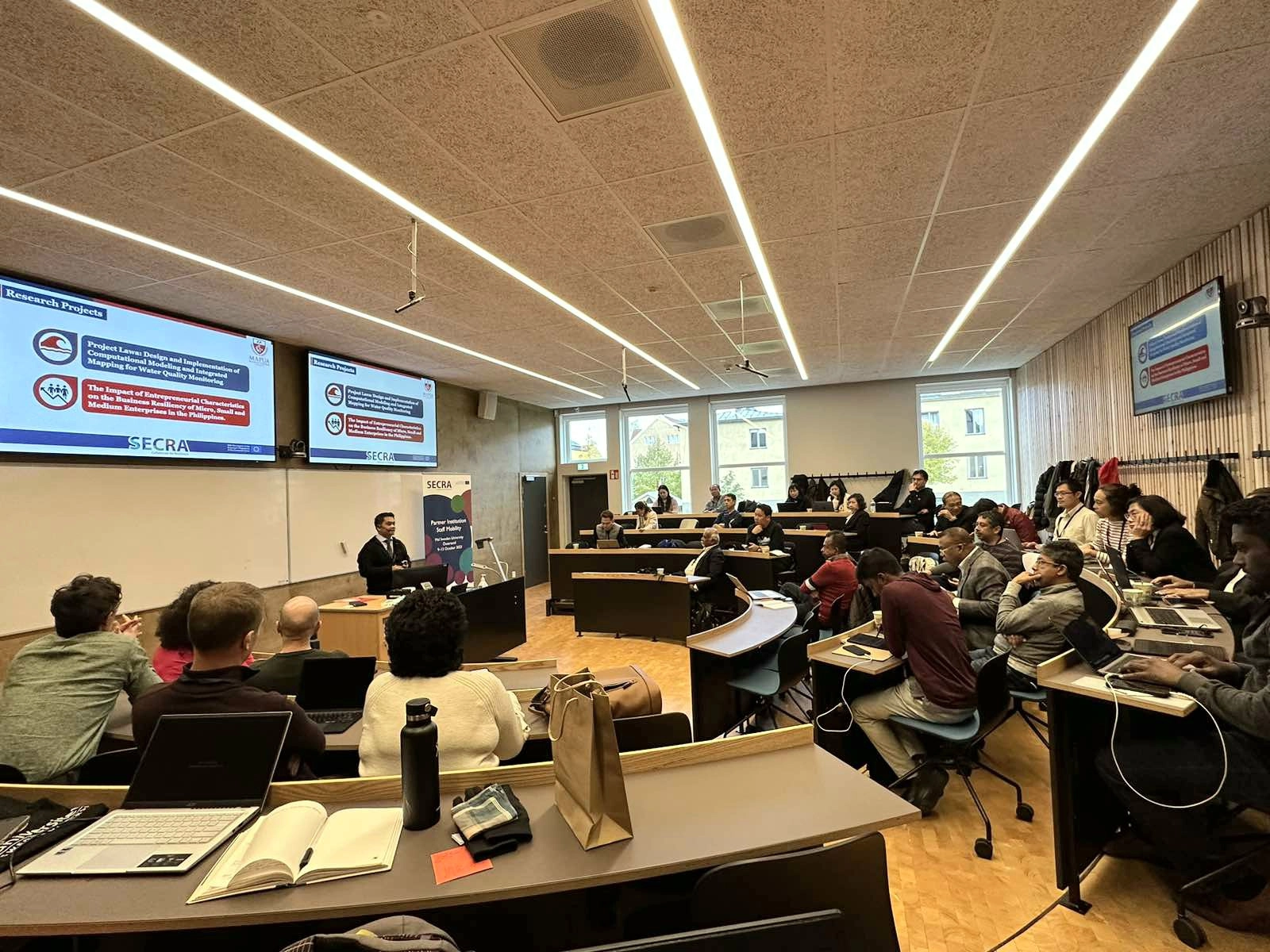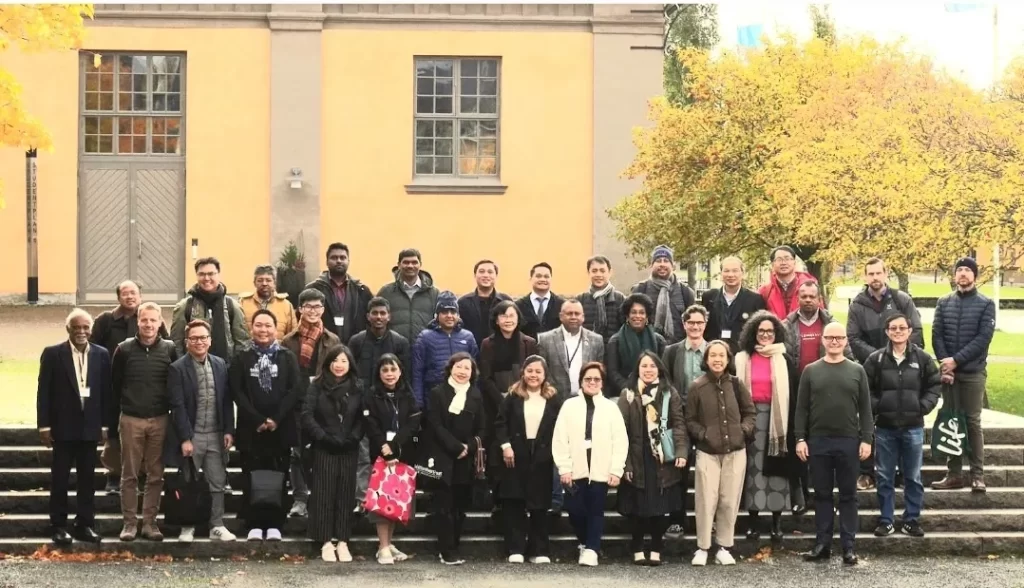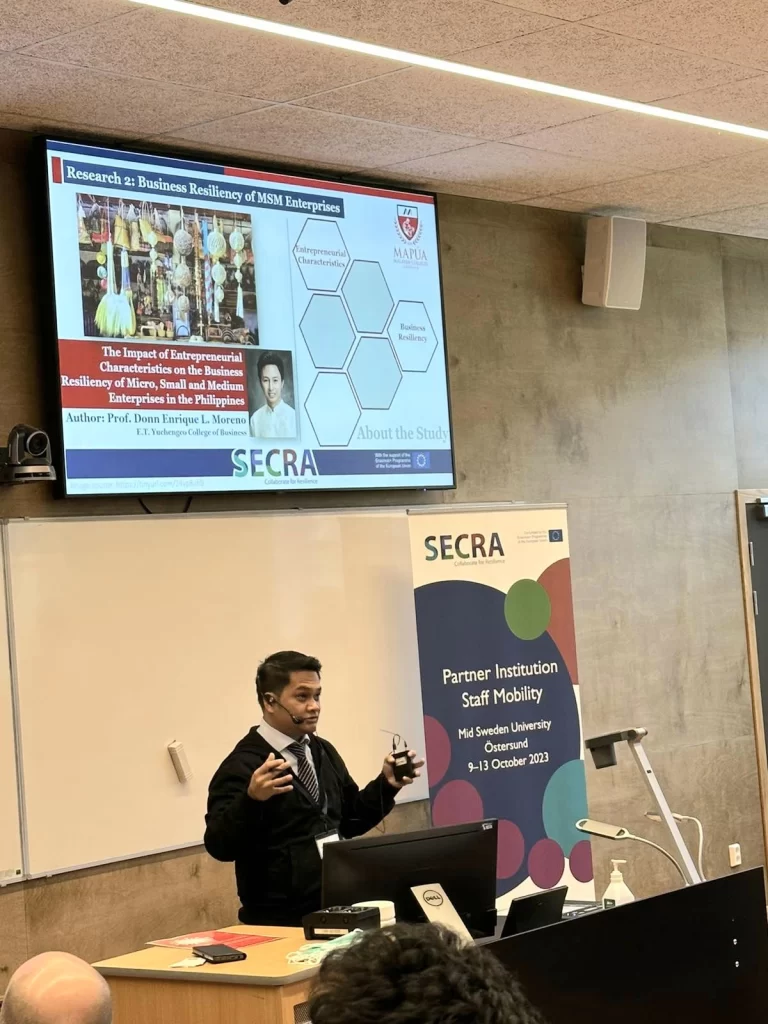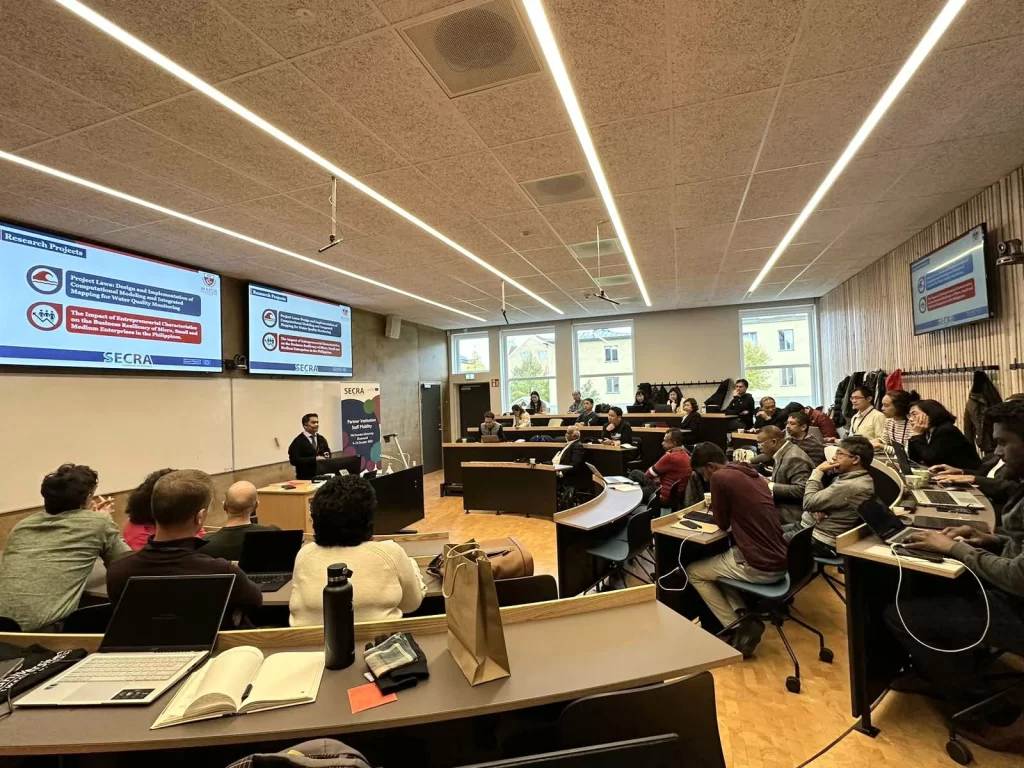Mapúa MCL presents Research Initiatives on Resilience at SECRA Meeting
Mapúa MCL presents two research initiatives on resilience during the Strengthening University-Enterprise Collaboration for Resilient Communities in Asia (SECRA) Meeting held from October 8 to 14, 2023 at Mid Sweden University, in the city of Östersund, Sweden. SECRA is a three-year project co-funded by the Erasmus+ Program of the European Union (EU). It aims to promote the development of resilient communities in Asia by creating innovative and productive collaborative projects between academic institutions and their industry partners within the context of disaster risk reduction and risk management.
Dr. Hermie V. Articona, the Director for Research of Mapúa MCL, presented a developing research project and a published paper of faculty members, both reflecting the research thrust of the institution which is anchored primarily on sustainability and technology development. These research initiatives are aligned with the Sustainable Development Goals (SDG), SDG 11 and 17. SDG 11 is anchored on making cities and human settlements inclusive, safe, resilient, and sustainable. On the other hand, SDG 17 is focused on promoting global partnerships for sustainable development – which is the main objective of the SECRA program.
The first research project presented is entitled, “PROJECT LAWA: Design and Implementation of Computational Modeling and Integrated Mapping for Water Quality Monitoring.” The lead for this project is Prof. Jonalyn G. Ebron from the College of Computer and Information Science. While the second presented work is a published paper in the business category entitled, “Impact of Entrepreneurial Characteristics on the Business Resiliency of Micro, Small, and Medium Enterprises in the Philippines.” The faculty author of this published paper is Prof. Donn Enrique L. Moreno from the E.T. Yuchengco College of Business.
These research initiatives reflect the two pathways that Mapúa MCL can pursue to help build resilient communities. The first pathway centers on the development of technology that can help us understand and manage environmental hazards, that are useful during disasters, and that can aid the needs of the community post-disaster events. The second pathway is anchored on building resilient Micro, small and medium entreprises (MSMEs), which can help sustain the economy especially during the aftermath of devastating disasters. Maintaining sources of income is crucial in rebuilding communities during the post disaster recovery period. Mapúa MCL’s Project Lawa falls on the first category, while the study on resilient MSMEs falls under the second category.
Project Lawa aims to create an efficient AI-based water quality monitoring system, which employs computational modeling and integrated mapping to help protect the lakes in the CALABARZON Region. An efficient and accurate system that would regularly monitor the general health of the lakes in the region is crucial in building sustainable and resilient communities. The Project Lawa Team hopes to raise awareness and concern on the issues surrounding water quality, and solicit action by bringing together local communities, agencies, Local Government Units (LGU), Non-Government Organizations (NGO), and other stakeholders near the target lake where the technology will be deployed.
From another standpoint, the author of the published paper on MSMEs, Prof. Moreno, sees business resilience as equally vital as building strong infrastructures and communities that can withstand disasters. Understanding the entrepreneurial characteristics and their contribution to the development of a resilient entrepreneurial mindset is integral in shaping the behavior of local businessmen. Specifically, creating a mindset that can survive and consistently endure yearly episodes of calamities in the Philippines such as typhoons, flooding, and other usual geographically related disasters affecting MSMEs.
Overall, the successful week-long SECRA Sweden Meeting became a venue for fruitful academic and research discussions giving partner institutions from Thailand, Sri Lanka, UK, Estonia, Philippines, and Sweden the opportunity to discuss important environmental, social, academic, and governance issues. The participants from the 13 partner academic institutions discussed the main targets of their work packages that include policy review plans, future research projects on resilience, and collaborative strategies that would help achieve the common endeavor, which is to build a stronger and more resilient Asian communities.





